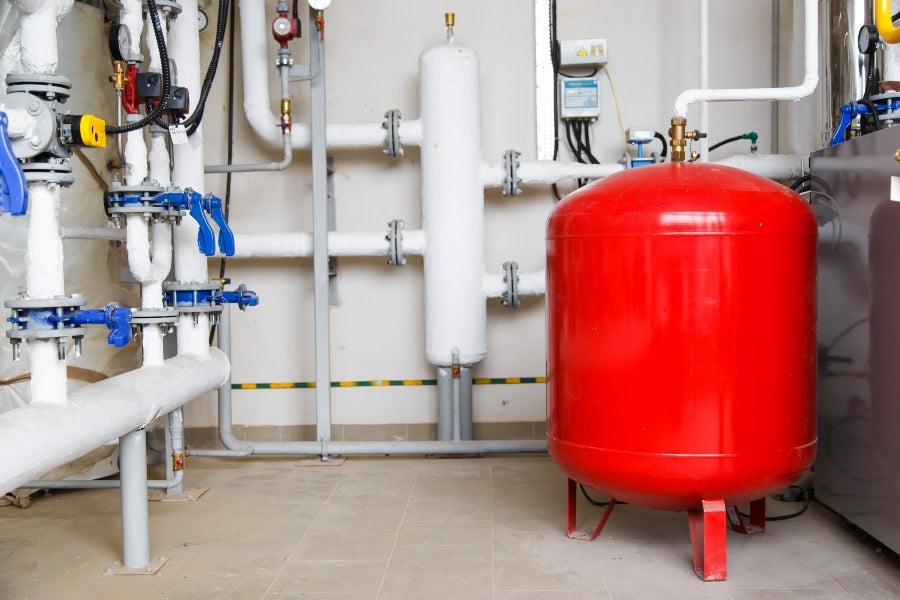Ways to Determine Whether Your Expansion Tank Is Damaged
Your water heater system relies on many components to function well, and one often overlooked but important part is the expansion tank. Known as a water heater expansion tank or thermal expansion tank, this small tank helps manage water pressure when heated water expands within a closed plumbing system. If the expansion tank isn’t working properly, the extra pressure can put stress on your pipes, fixtures, and water heater. This can lead to leaks or more expensive repairs. Understanding how your expansion tank works and how to spot potential problems can help you keep your plumbing in good shape.

What Is an Expansion Tank and Why Does It Matter?
An expansion tank is a small, secondary tank connected to your water heater. When water heats up, it expands and creates additional pressure in your plumbing system. The expansion tank is designed to absorb this pressure, protecting your pipes and other fixtures from damage.
Without an expansion tank, the extra pressure has nowhere to go, which could eventually lead to leaks or cause stress on your water heater, reducing its lifespan. By handling this pressure, the expansion tank ensures the system operates efficiently and safely.
Signs That Your Expansion Tank May Be Damaged
A damaged or malfunctioning expansion tank often shows signs you can catch if you know what to look for. Here are some of the common indications:
- Inconsistent Water Pressure: If you notice that your water pressure fluctuates, it could mean the expansion tank isn’t functioning as it should.
- Leaks Around the Tank: Water pooling around the tank or dripping from its connections is a strong signal that something is wrong.
- Rust or Corrosion: Visible rust or corrosion on the tank is often a sign of wear and may mean the tank is at risk of failure.
- Unusual Noises: Strange sounds like knocking or tapping in your pipes can suggest the expansion tank is struggling to manage the system’s pressure.
- Problems with the Water Heater: If your water heater is working harder than usual or has trouble maintaining consistent temperatures, the issue may be linked to the expansion tank.
How to Check the Condition of Your Expansion Tank
If you suspect your expansion tank is damaged, there are several steps you can take to evaluate its condition:
- Inspect It Visually
Look for leaks, rust, or any visible signs of damage. A quick inspection can often reveal if something is wrong. - Test the Pressure
Use a pressure gauge to measure the tank’s internal air pressure. Typically, a functional expansion tank should show a reading of 12-15 psi. If the pressure is off, it may need to be adjusted or replaced. - Perform a Tap Test
Gently tap the tank with a wrench. A healthy tank will sound hollow on top and solid at the bottom, indicating proper separation of air and water inside. - Check the Schrader Valve
The Schrader valve, found at the top of the tank, allows you to maintain air pressure. If pressing the valve releases water instead of air, the tank’s internal bladder may be damaged and require replacement.
How to Maintain and Protect Your Expansion Tank
Regular maintenance can keep your expansion tank functioning properly and prevent potential issues. Start by checking the system’s pressure regularly to ensure it stays within a safe range. Pressure that is too high or too low can signal problems that need attention. Additionally, make it a point to inspect the tank at least once a year. Look for leaks, rust, or other visible signs of wear that might indicate the tank is not operating as it should. Another important step is flushing your water heater annually. Over time, sediment can accumulate in the heater, placing unnecessary strain on the expansion tank. Flushing the system helps reduce this stress and improve overall efficiency. Finally, if you’re uncertain about the condition of your expansion tank or suspect an issue, consider calling in a professional. The experts at Kevin Ginnings Plumbing can perform a thorough inspection, identify any problems, and recommend the appropriate repairs or adjustments. Taking these steps can help extend the life of your expansion tank and keep your plumbing system running smoothly.
Contact Kevin Ginnings Plumbing to learn more!
If you live in South Kansas City and think your water heater expansion tank might need attention, Kevin Ginnings Plumbing is here to help. We are happy to assess your water heater, assist you with routine maintenance, and provide service or installation of a new unit. Contact us today for professional service and advice to ensure your plumbing system stays reliable.
